One of the Synod Bishops remarked that a new approach to the Church’s outreach to homosexuals should include a revision in terminology: “There’s very strong support for a less condemnatory approach and language is at the heart of that.”
For years, there has been controversy centered around the term “intrinsically disordered.” In the 1970s, Dignity, a Catholic-homosexual lay organization that has been suppressed in most American Catholic dioceses, made this complaint part of their official platform:
“We pray and work for that day of reconciliation when the Roman Catholic Church will not consider its GLBT children as ‘intrinsically disordered,’ but will welcome and accept all people as children of God endowed and blessed with unique gifts, talents and orientations that need to be nurtured, celebrated and developed for the praise and glory of God.”
Since then, little has changed regarding what many perceive as an offensive and, at best, un-pastoral description of homosexuality; recently, a member of the “Spiritual Friendship” group, a collaboration of “gay Catholics” who outwardly support the Church’s stance on no sex outside marriage, but, at the same time, steadfastly hang-on to the “gay” orientation, had this to say on the same subject:
“More important than either right or left, however, is the bewildered cry of the person in the middle, the person who either is or loves someone who is gay. The use and misuse of the description of homosexual inclinations as ‘objectively disordered’ reads to her or him, not as a moral guideline, but as a negation of someone’s entire personhood, rendering the talk about dignity of human persons devoid of content. It seems to me that these people are the real reason we should exercise caution in the use of this language.”
I never felt that way: when I first came across those terms, “intrinsically disordered” and “objectively disordered” in “The Catechism of the Catholic Church,” I thought they were actually rather kind and overly generous. Before that, I had spent years searching hopelessly for peace and contentment in the “gay” lifestyle, and never finding it; so, when I first read “The Catechism,” I was already a severely beaten and deeply wounded soul. For, at one time, all of my “personhood” was indelibly linked to my belief that I was “gay.” Yet, over those years, my faith in all things “gay” began to deteriorate like my wasting body: towards my final days in the “gay” world, I became excruciatingly thin, my anus prolapsed, and the antibiotics that I continually swallowed no longer worked against an endless series of increasingly virulent STDs. I had once been proud; now, my looks were gone, I frequently soiled my pants with blood and feces, and I stunk. I spent nights hanging out at the public toilets – even there, I was often passed over by men who, only ten years before, I would not have lowered myself to speak with.
But, I had been stubborn. Humiliated and almost completely alone, someone wanted me. Having no options, I went with Him. I couldn’t begin to understand why He saved me; after all, many that I had known and loved, who were far less perverse than myself, I watched helplessly as they fell forgotten into the grave. Although, I felt blessed, I thought Our Lord Jesus Christ a rather unpredictable God who helped some, but left others to rot. Consequently, I wanted to know more about Him, but I also feared Him; and, I didn’t trust Him.
Quickly, Christ placed two books in my hands: “The Holy Bible” and “The Catechism of the Catholic Church;” in one, I would learn about Him, in the other, about His Law. In Scripture, I was most drawn towards the power of Christ to heal; everyone He touched, the sinner, the sick, and the possessed – were immediately cured. I wanted to be one of them, but I was scared to go near Him. In “The Catechism,” I opened the book, looked at the index, and turned immediately to the section regarding homosexuality. My first reaction: “That’s it!” There seemed to be so little on the page, but I did focus on that word: “disordered.” Immediately, I looked at my own broken body. I could see disorder; for “gay” sex had literally thrown every organ, every limb, and every cell, out of balance; and, I was suffering because of it. Only, again, my thoughts were focused on – I want to be healed.
Instinctively, I knew healing somehow depended on that word: “disordered.” But, at first, I thought: since I was no longer engaging in “gay” sex – the “disordered” part of me was over. Only, it wasn’t. Something still didn’t feel right inside of me. Immediately, I blamed God. I thought, quite proudly, I already gave the most important thing in my life to Him, I had given up the ability to express my love for other human beings, and to receive that same love from them; then – “Why doesn’t He heal me of this desire?” In my mind, this God, the one who created me with these attractions, was a sadistic and vengeful deity; giving a few of us the inclination while, at the same time, forbidding anyone to act upon them. I thought I would spend the rest of my life as an emaciated street urchin – constantly looking in the bakery store-window, near insane with hunger, but never allowed to enter and eat.
Yet, for some unknown reason, I remained chaste, wholly “gay,” but incessantly pained for something more; for something better – perhaps just a day without this gnawing ache within me. In my sorrow and frustration, repeatedly, I turned to Scripture; my favorite passages – the healing power of Christ and the near child-like simplicity of those who sought Him out and of those He took notice: the public-sinner, running from her tormentors; the crippled man who couldn’t crawl fast enough to the healing water; and the woman who frantically reached out for the hem of Christ’s cloak. Slowly, I saw myself in each one of these: the bullied and lonely boy who always felt isolated and rejected, running not towards forgiveness, but after the ever elusive “gay“ rainbow of happiness; the twisted “gay” man, grown so comfortable in his near life-long “disorder” that Christ had to ask him: “Wilt thou be made whole?” And, finally, the poor wretch who was bleeding out, precariously near death, that he put his hand out as a last act of desperation. Finally, I got it: the “disorder” of my life needed to be healed, but, so did I.
What began as my initial realization, albeit, considering my horrific experiences in the “gay’ lifestyle, was not a difficult one to grasp, that all homosexual acts were “disordered,” after much prayer and trail, I also came to understand that I was “disordered.” In hindsight, it was a rather simple conclusion to reach: after all, how could the choice to engage in “gay” sex, which emerged from my homosexual desires, also ultimately originate in someone who was completely healthy and utterly free of disorder. My final conclusion: the sex itself, and the desire for the sex, was certainly sick, but I was sick too.
When I received that Grace, I became more childlike, I became more like those whom Jesus healed; I allowed Christ to enter every aspect of my life, even into those painful and long suppressed memories. Effortlessly, Christ walked through the multitude of imposters I spent years creating: the hypersensitive kid who thought he was “gay,” the impressionable teen that followed anyone home, the would-be porn star, the hate-filled sadist, and the self-destructive street hustler; all of them were a collective false front hiding the whimpering boy at the back of the room. He went directly to him…ignoring all the others, because, when this sick boy was healed – everyone else just disappeared. And, “gay” went right along with them.
“And they brought to him young children, that he might touch them. And the disciples rebuked them that brought them. Whom when Jesus saw, he was much displeased, and saith to them: Suffer the little children to come unto me, and forbid them not; for of such is the kingdom of God. Amen I say to you, whosoever shall not receive the kingdom of God as a little child, shall not enter into it. And embracing them, and laying his hands upon them, he blessed them.” (Mark 10: 13-16)
I was finally free, finally healed, and, at last – no longer “disordered.” But, what would have happened if “intrinsically disordered” and “objectively disordered” were never included in “The Catechism” section on homosexuality, or, later, they were removed; and, I never saw that word – “disordered.” In hindsight, I think everything would have turned out very differently for me. Recently, Archbishop Chaput commented on the sort of language being utilized at the Synod, writing:
“…overall, the text engenders a subtle hopelessness. This leads to a spirit of compromise with certain sinful patterns of life and the reduction of Christian truths about marriage and sexuality to a set of beautiful ideals — which then leads to surrendering the redemptive mission of the Church…We need to call people to perseverance in grace and to trust in the greatness God intended for them — not confirm them in their errors.”
In a later statement, he went on to say: “Just as our thoughts shape the language we use, so too the language we use shapes our thinking and the content of our discussions. Imprecise language leads to confused thinking, and that can sometimes lead to unhappy results.” With a kinder and gentler “Catechism,” there is a great possibility that just such a thing could have happened to me – that I would have been forever confirmed in my errors – locked into the “gay” orientation and never healed from it; because, the word “disorder” for all its seeming harshness and uncharity, was incredibly challenging. It was an unsettling word, like the advice you get from your parents when they are at their best, or from a really good friend, the brave soul who doesn’t patronize you or go along with your every whim, thinking that’s what a “good” friend does; “disordered” shock we out of my “gay” complacency and forced me to question how I regarded myself and to always look deeper.
In contrast, certain prelates of the Church have expressed their opinions regarding the origins of homosexuality; oftentimes, making unhelpful and erroneous statements that will only succeed in further trapping those who suffer with same-sex attraction into the “gay” orientation: “For me, this inclination is a question mark: It does not reflect the original design of God and yet it is a reality, because you are born gay…” Surely, to the lost, vulnerable, and the questioning, hearing something like this, especially if they are reticent about leaving behind the “gay” orientation, as I once was, will “confirm” their sometimes wavering adherence to the belief that you are just made this way: hence, how can you possibly fight against, change, or heal from something which is inherent to your being – “because you are born gay.”
No one is born “gay,” just as no one is born “disordered – we become “gay” and we become “disordered.” Oftentimes, we cannot see this since “disorder” usually enters our lives at an incredibly young age; consequently, what is clearly disjointed always appeared whole to our senses. Only, when we let “gay” run its course, and we reemerge at the other end with nothing, do we begin to question those earlier suppositions. For those who spend an extended period of time in the gut of gayness, we also come back stripped of any armor. Then, in our humiliation, we become children once more…the same abused and neglected child who embraced homosexuality like it was the answer to a prayer; lastly, we are also become once again the same “disordered” and disregarded child – that Our Lord Jesus Christ simply wants to heal.
How “disorder” enters the lives of “gay” men and women:
Across all studies, the highest estimates reported were for LSA (lifetime sexual assault victimization) of LB (lesbian and bisexual) women (85.0%), CSA (childhood sexual assault) of LB women (76.0%), and CSA (childhood sexual assault) of GB (gay and bisexual) men (59.2%).
“The Prevalence of Sexual Assault Against People Who Identify as Gay, Lesbian, or Bisexual in the United States: A Systematic Review”
Emily F. Rothman
Trauma Violence Abuse April 2011 vol. 12 no. 2 55-66
“Sexual minorities tend to be disproportionately exposed to ACEs (adverse childhood experiences.) Associations between ACE domains and age at sexual debut differed by sexual orientation. The strongest association between physical/psychological abuse, sexual abuse, and parental incarceration and psychopathology and age at sexual debut =14 years was observed among MSM.”
“Sex and sexual orientation disparities in adverse childhood experiences and early age at sexual debut in the United States: Results from a nationally representative sample”
Monique J. Brown et al.
Child Abuse Negl. Author manuscript; available in PMC 2015 Aug 6.
“…for same-sex attracted men stressful childhood experiences might reflect an aspect of etiology.”
“Depression and anxiety in patients with and without same-sex attraction: differences in clinical expression, lifestyle factors, and vulnerability indicators”
Henny M W Bos et al.
Brain Behav. 2015 Sep; 5(9): e00363.
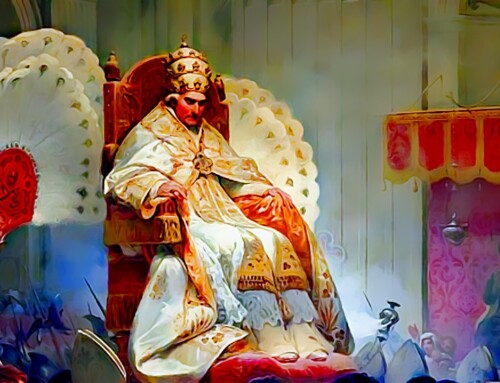
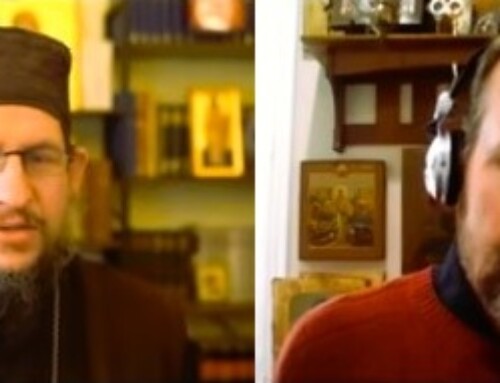
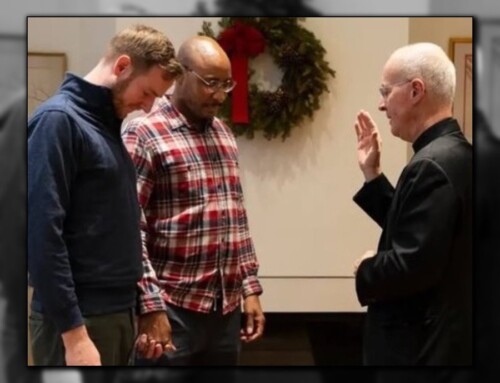
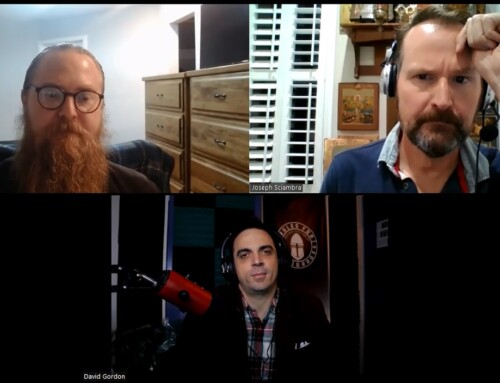
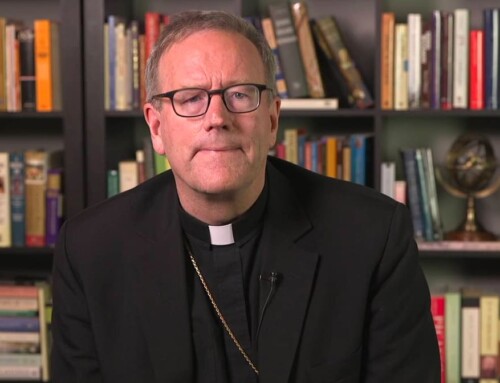
Joseph – this is one of your most beautifully written posts ever. I can add nothing except God bless you.
In the movie “The King's Speech” the future King George cannot remember a time when he did not stutter. But his therapist proved to him eventually that stuttering is not something children are born with. Is this a corollary to what you mean by not being born “gay”?
I'm stunned again Joseph. I'm amazed by God's grace in your life. Please accept my apologies for anything I've ever written or said to contradict the incredible witness you are to the merciful love of God. You are like Lazarus – raised from the dead. Your story makes human all those stories of shame and humiliation to which fallen human nature can fall victim too. God bless you and bring to completion the good work he has begun in you.
Joseph, your witness is a blessing to us all and your sacrifices will not be in vain. Mankind is better because of your life and the love of Christ you want to give to others.
Once again your elegant and humble words have brought me to tears. My wife and I pray for you every night.
You are an amazingly valuable gift for those with eyes to see & ears to hear. I'm praying that this “Share” will PPP up on the FB news feeds of these very people:)
XOXO
As always I am grateful for your witness to help others, and for your kindness and love for all. I pray every single day that God continues to grant you His grace to go forward.
I bless you brother for this wonderful witness. May God bless you tremendously for speaking up for all the wondrous things He has done in your life. Glory to God in the Highest. And now I pray that He will make you a Saint, to serve as an example to those who are suffering like you used too.. that you be for them, an Epiphany, a guiding star to our Lord Jesus. May the Father, the maker of all Good things grant this petition, in Jesus' name I pray. 🙂